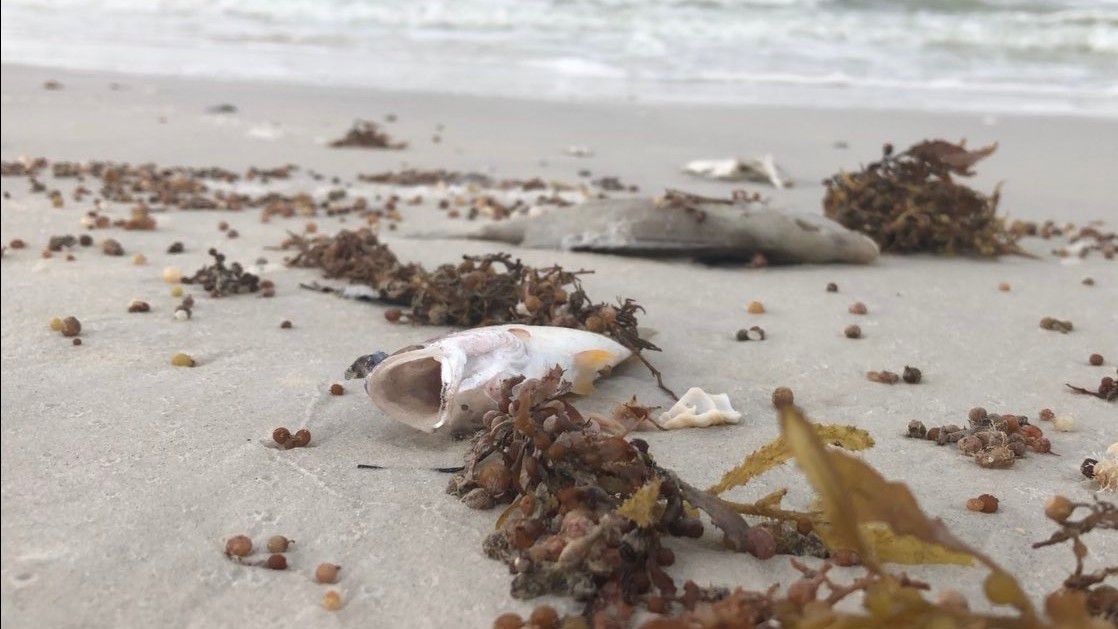ST. PETERSBURG, Fla. — The National Weather Service cautions residents and beachgoers about possible red tide-related respiratory irritation until 10 p.m. Saturday in coastal Pinellas County.
What You Need To Know
- NWS cautions about possible respiratory irritation in coastal Pinellas until 10 p.m. Saturday
- National Weather Service says 'beach hazards' statement linked to current surge of red tide
- 'People with asthma, emphysema or any chronic lung disease may be more sensitive,' it says
The NWS’ Tampa Bay office said in a Friday “beach hazards” statement that “symptoms may include coughing, sneezing, and tearing eyes.”
“People with asthma, emphysema or any chronic lung disease may be more sensitive,” the statement continued. “Irritation may vary by beach and throughout the day.”
The NWS announcement comes as hundreds of tons of dead fish continue to wash up along shorelines in Pinellas, Pasco, Hillsborough and Manatee counties.
Analise Keeney, a harmful algal bloom forecaster with the National Oceanic and Atmospheric Administration's National Ocean Service, wrote in an email to Spectrum Bay News 9 that the NWS statement came as "a result of onshore wind speed" and bloom concentrations of Karenia brevis, the organism responsible for most Florida red tides, along the Pinellas coast.
Keeney noted "potential for high respiratory irritation in and around the area." She also specified Manatee County.
- To report red tide or dead fish in Pinellas County: Call (727) 893-7111 or visit STPETE.ORG/ACTION
- LINK: Red Tide Respiratory tool
- LINK: Weekend events if you want to avoid the beach
"Forecast wind conditions will support potential for impacts through Saturday evening," she said in her email.
The NWS statement makes no reference to reports of people experiencing such symptoms. But in a Wednesday update, the Florida Fish and Wildlife Conservation Commission said: "Respiratory irritation suspected to be related to red tide was reported over the past week ... in Hernando, Pinellas, Manatee, and Sarasota counties."
Scientists link red tide — an often-occurring Florida phenomenon — to algae blooms from runoff of sewage and fertilizer into waterways, sometimes from significant weather events.
The region’s current red tide outbreak has promoted scientists to seek links to algae blooms and the pumping of wastewater of into Tampa from the site of an old fertilizer plant two months ago.



